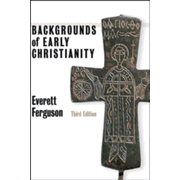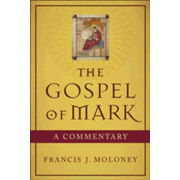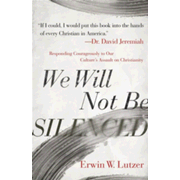 DURING THE readings for the
Nineteenth Sunday after Pentecost, we again hear an important teaching passed
on to the Church from the Gospel According to Saint Mark. In this text, our
Lord addressed the legal problems of the day associated with marital divorce, and he also
spoke of the morality of a society that had little regard for the lives of
children. We read…
DURING THE readings for the
Nineteenth Sunday after Pentecost, we again hear an important teaching passed
on to the Church from the Gospel According to Saint Mark. In this text, our
Lord addressed the legal problems of the day associated with marital divorce, and he also
spoke of the morality of a society that had little regard for the lives of
children. We read…
And
Pharisees came up and in order to test him asked, “Is it lawful for a man to
divorce his wife?”
He answered them, “What did Moses command
you?”
They said, “Moses allowed a man to write a
certificate of divorce, and to put her away.”
But Jesus said to them, “For your hardness of
heart he wrote you this commandment. But from the beginning of creation, ‘God
made them male and female.’ ‘For this reason a man shall leave his father and
mother and be joined to his wife, and the two shall become one flesh.’ So they
are no longer two but one flesh. What therefore God has joined together, let
not man put asunder.”
And
in the house the disciples asked him again about this matter. And he said to
them, “Whoever divorces his wife and marries another, commits adultery against
her; and if she divorces her husband and marries another, she
commits adultery.”
And they were bringing children to him, that
he might touch them; and the disciples rebuked them. But when Jesus saw it he
was indignant, and said to them, “Let the children come to me, do not hinder
them; for to such belongs the kingdom of God. Truly, I say to you, whoever does
not receive the kingdom of God like a child shall not enter it.” And
he took them in his arms and blessed them, laying his hands upon them. (Mark 10:2-16)
On
Marriage…
The text we deal with in many
churches this week falls hard upon the ears. Well it should be.
Within the text, the author of Mark related to the early Church concerning the laws that governed
practices within their scattered society. Problematic for them was the
difference between what had been written in the civil law for the lands situated within
Palestine, over against what was occurring in the lands beyond those borders.
You see, within Palestinian lands a man could sue for divorce but a woman could not. However, out in the Roman Empire beyond those geographic bounds, including the reading area where this Markan text was written, it was legal that women could also sue for divorce. Thus a legal issue was at work behind the questioning. This was the dichotomy through which the Pharisees originally drew out the opinion of Jesus, hoping to entrap him in the controversy. In the answer our Lord gave, however, we find guidance for not only the church of Mark, but for us today.
First of all, turning the question back upon them, our Lord asked what Moses had taught. When they answered rightly, he explained the "hardness of heart" moral reason behind the mandate. Second, he related the status of marriage as initially established by God, as explained from the beginning as rooted in the order of creation. By quoting the scriptures believed to be passed along from Moses, Jesus thus side-stepped the diabolical test his opponents put before him. He taught concerning the eternal character intended for the monogamous, permanent unity exclusively meant for a man and a woman.
You see, within Palestinian lands a man could sue for divorce but a woman could not. However, out in the Roman Empire beyond those geographic bounds, including the reading area where this Markan text was written, it was legal that women could also sue for divorce. Thus a legal issue was at work behind the questioning. This was the dichotomy through which the Pharisees originally drew out the opinion of Jesus, hoping to entrap him in the controversy. In the answer our Lord gave, however, we find guidance for not only the church of Mark, but for us today.
First of all, turning the question back upon them, our Lord asked what Moses had taught. When they answered rightly, he explained the "hardness of heart" moral reason behind the mandate. Second, he related the status of marriage as initially established by God, as explained from the beginning as rooted in the order of creation. By quoting the scriptures believed to be passed along from Moses, Jesus thus side-stepped the diabolical test his opponents put before him. He taught concerning the eternal character intended for the monogamous, permanent unity exclusively meant for a man and a woman.
So
God created man in his own image, in the image of God he created him; male and
female he created them. And God blessed them, and God said to them, “Be
fruitful and multiply, and fill the earth and subdue it… (Genesis 1:27)
We need to realize that today in the legalisms
presently working within modern society, we have many governmental challenges
to this creative order, Therefore, I consider that it is the responsibility of
the true Church to speak clearly. We need to speak clearly just as Mark
related the words of Jesus about the matter in the latter years of the first
century.
Because of the heat of modern debate, misunderstanding
and misinterpretation are thus to be quenched by the power of the Holy Spirit. We
need to emphasize the words, “What
therefore God has joined together, let not man put asunder.” This single sentence speaks to the status
of marriage before God. For this reason, I refer you to an article written on the topic.
On
Children…
In the same way, the Markan text
shifted the focus of the early Church to the first century society’s casual and
demeaning attitudes concerning children. As we know, this topic has also echoed through time into our modern consciousness. Not only has the highest
U.S. court spoken on the merits of marriage among non-heterosexual partners,
it has also stepped beyond the life supporting stance of our Lord by redefining when life begins.
While it is not the ultimate purpose of this
dialog to sway opinions for either issue, I simply call you as faithful Christians
and church communities to allow the Holy Spirit to teach concerning the
unchanging, eternal character of scripture. Therefore, these admonishments
given by Jesus to the Pharisees and the church of Mark yet stand before us
today.
Let us then, though we are too often sinfully influenced by our culture, pray for active tongues to speak gently to one another plainly about such matters. To assist you, I offer a writing done previously by myself…
Let us then, though we are too often sinfully influenced by our culture, pray for active tongues to speak gently to one another plainly about such matters. To assist you, I offer a writing done previously by myself…
While you weigh these matters before the altar of our God, may the peace of God which
surpasses all human understanding, keep your hearts and minds in Christ Jesus,
our Lord.
Please be informed concerning the availability of a book about authentic pioneering faith exhibited by my ancestors during the days when the U.S. was being formed. The words written portray an authentic family struggle of faith during times of strife.
Please be informed concerning the availability of a book about authentic pioneering faith exhibited by my ancestors during the days when the U.S. was being formed. The words written portray an authentic family struggle of faith during times of strife.





